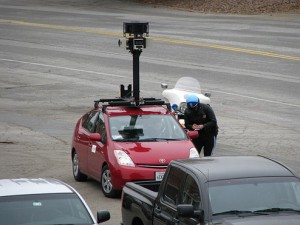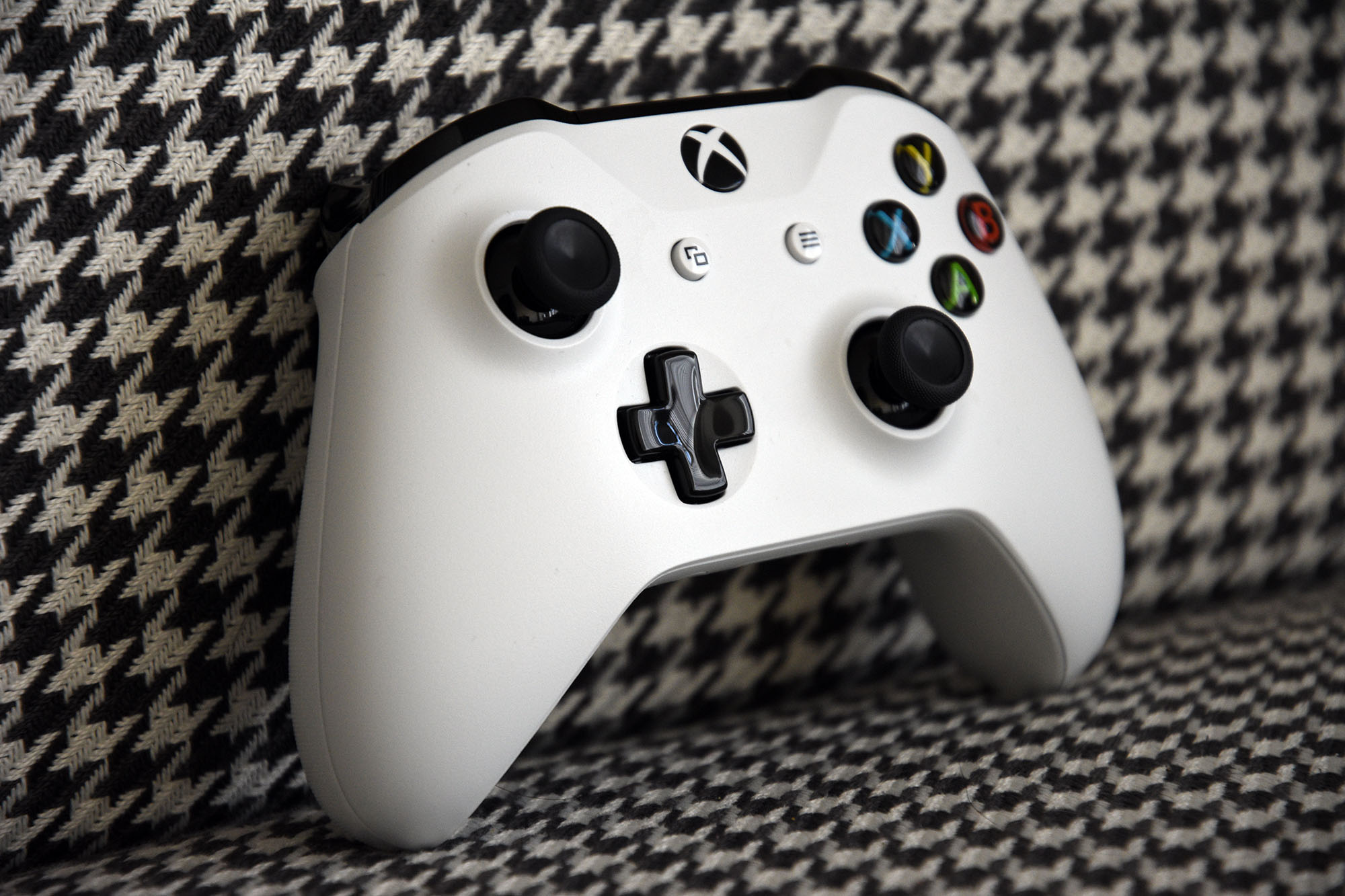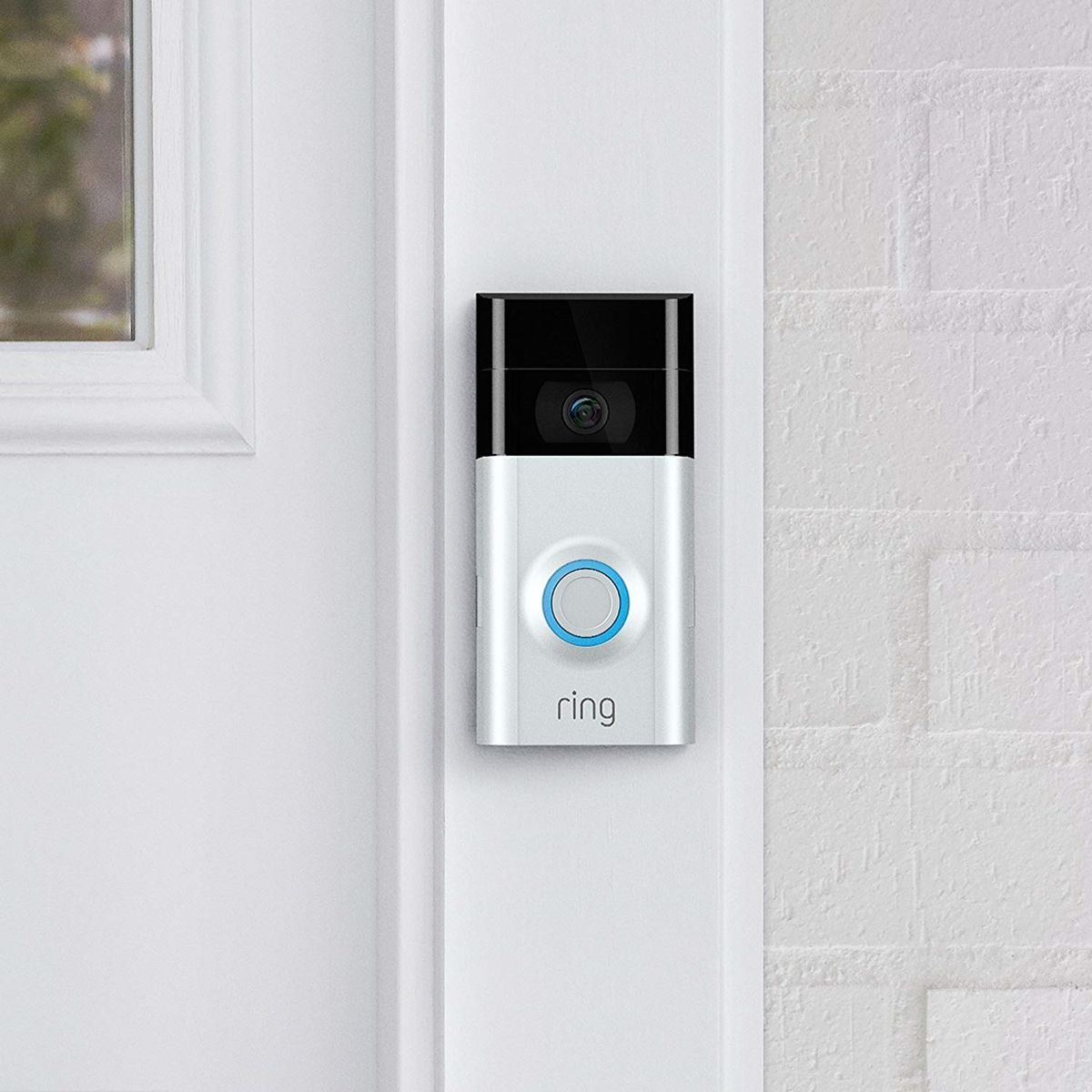As far as I’m concerned, there are two sides of Google:
- The stuff we know they’re working on
- The stuff they’re secretly and privately working on
 I have no idea how big each of those sides are but a recent article on ReadWriteWeb is making me increasingly interested in that secret/private side. Apparently Google had been using it’s Street View cars to collect information (name, strength, signal, etc) about local Wi-Fi networks that they were driving by/around.
I have no idea how big each of those sides are but a recent article on ReadWriteWeb is making me increasingly interested in that secret/private side. Apparently Google had been using it’s Street View cars to collect information (name, strength, signal, etc) about local Wi-Fi networks that they were driving by/around.
Way back in May, Canadian officials noted the privacy concerns of this data collection and today they published a statement, explained below by Audrey Watters of RWW:
In the report issued today, Canadian privacy commissioner Jennifer Stoddart said that the “collection is discontinued and Google has no plans to resume it.” The plans, according to Stoddart, are to rely on users’ smartphones to collect the information on the location of WiFi networks. Google uses this to build out its location-based services database, particularly in those areas with limited celltower strength.
What’s the FIRST thing you think Google would do with that information? What location-based service would they provide? They could simply add a layer of Wi-Fi networks to Google Maps, but I’d like to throw my over-the-top speculation into the ring:
We know that smartphones and their carriers have recently been embracing Wi-Fi calling through services like Skype – what if Google is trying to further push voice through data pipes, providing people with a “coverage map” of voice data that would work solely on unrelated but overlapping Wi-Fi networks?
Call it a long-shot, call it a conspiracy theory, call it whatever you want… but the bottom line is that Google is working on a lot of things that, if we knew, would surprise us. They announced Android. They announced the Nexus One “Google Phone”. They announced Google Navigation. They announced Chrome browser. They announced Chrome OS and Chrome Netbooks. They announced Google TV.
If five years ago I told you Google would be making a mobile OS, selling a mobile phone directly on their site, offering turn-by-turn navigation software, launching their own web browser, creating their own desktop software for netbooks/tablets, and creating a television platform – would you have believed me?
Not in a million years. But TODAY, I could tell you pretty much anything, and you would have no choice but to at least entertain the possibility that it was truthful. Google has built a reputation and culture of innovation. What we see on the surface are the seeds that have overcome the odds, sprouted in the jungle, and somehow found their way out of the darkness and reached above the canopy that shades the ground below.
 I mean, c’mon… now we know they’re testing a car that drives itself.
I mean, c’mon… now we know they’re testing a car that drives itself.
What other seeds has Google planted that we don’t yet know about and which ones will eventually shine in the spotlight? Take your guess below and swing back by with an “I told you so” when they launch exactly what you guessed a few years later.






Gooood speculation. One can only hope! :)
I’d say it is more simple than that. Wi-fi network names are used to guess the estimate location of your handset/laptop. The more names + gps coordinates they get, the better the estimate.
This whole wifi collection went way out of control. Google found out the program they were using was logging the raw network data. Which happened to have some personal info if the network was unprotected. They immediately told everyone and said we are now deleting that data and will fix it so we don’t collect any more.
Suddenly governments around the world said, “hold it! don’t delete that data!” we need that for evidence to sue you and propel our political careers forward.
Now it looks like Google is finally getting permission to delete the data it wanted to immediately delete in the first place.
I’m wearing a foil hat just to be safe.
Google is building SkyNet.
that’s not a good speculation at all… So what do you expect everyone to give Google control over their routers so any and everyone can use them? That doesn’t even make sense..
Not to mention most areas that I know of that don’t have 3G do not have High Speed Internet either..
Personally, I have no idea why people are upset.
If you leave your life’s book open to read, you can’t be upset when the world takes a peek.
Same goes for wifi networks.
Enjoyed the article.
Once 700MHz WiFi hits, it’s game over for cell phone companies. You’ll have WiFi signals with a range measured in miles, not feet, and the free market and innovation and Google (among other companies) will put an end to these $100/month phone bills and text messaging charges.
A couple things to look for:
– VOIP showing up in stock Android. Already rumored to happen in Gingerbread.
– Google lifting the Android Market restriction requiring devices to have a cellular radio.
Where’s the Google Flux Capacitor? I want to be able to search for stuff in the future as well as the past.
Oh this is old news and it is stupid.
Commentator 3 / Chris is right.
–
Google could have said nothing and no one would have known or cared but they decided to tell people what happened and apologise.
The reason behind it is so simple, tracking locations for wifi. Recording wifi is nothing new, it has happened before.
–
If people would encrypt their connections, this wouldn’t have happened. Next time it might not be someone so nice who collects your info and passwords.
I am all for speculation and agree on the browser, phone OS, desktop OS etc… not being anticipated, but if you look back all of those make sense now.
Google makes money from ads, they want everyone to be online because people search and view ads (text/video).
It really is that simple. Look at Youtube, free 411, Google Voice etc… They are building excellent voice recognition so that they can provide contextual ads in video which traditionally was “closed”. If you put it all together it really is simple and makes sense.
Back to your speculation: Rubbish.
The wifi information they collected would be absolutely useless for a wifi calling coverage map. Think about it:
– How often do they drive their streetview cars around to update the data?
– How often do people change wireless routers and change from open to protected?
– How often do wireless router owners move?
– How many APs have the same SSID?
For the data to be of any use whatsoever, the MAC addresses need to be used, optionally in conjunction with the SSID. Now how many wireless routers still ship unencrypted?
I mean think of the nightmare it would be as an end user trying to find a place to make your wifi call that hadn’t changed since the data was gathered? And think of the effort involved. Is our future a future where we have to look at a map to make a phonecall? The future is where things happen transparently for the end user. Your phone would be set to auto-connect to open/suitable networks when in range. Because these networks would possibly be changing and fluctuating in real time, having a streetscraped map would be pointless.
Truly I call this absurd. Perhaps things like Starbucks, T-Mobile Hotspots, etc… but these are already in databases and are already mapped. Private wifi networks, an unknown percentage of which are protected, is useless for developing a wifi calling coverage map.
The only things I can see that could be intentionally derived from this are:
– Legal pursuits as brought up from @Chris
– Better GeoIP database by connecting to open networks, getting public IP, updating GPS coordinates based on location knowing the caveats of dynamic IP blocks.
– Better location awareness in absence of or in addition to GPS. This would require multiple SSID/MAC combinations to help rule out an AP having moved from one location to another.
– Possibly a “Look at the wifi density in the world at this point in time” map. But this couldn’t serve any purpose in terms of providing calling locations for people and Google would only release this after anonymizing the data. It would just make a pretty poster or navigable chart.
I hate to write such a long comment, and I am all for speculation, but I find your article rather void of reasoning. This is the same kind of absurd reasoning and poor writing that led to the “OMG G2 HaS ROoTKiT tO DEFeET HaXORZ” stories going around a few weeks back.
I know Google wants to have an android phone that uses the 700Mhz band for their gPhone, and Google has said early this year that Google Voice will be VoIP enabled. I can’t wait for that and the FCC approved the use of the unused whitespace in the 700Mhz band for people to use.
I can not wait for Google to enable VoIP and more so a phone that uses the 700Mhz band.
Google collect the Wireless data to improve location services. If you dont have GPS enabled, then the phone will try to use mobile cell data, in conjunction with Wifi (if turned on) to locate you.
I can prove this, as I’ve moved house since the streetview cams drove past my house. I’m potentially still in the same mobile cell, and if I dont use GPS, but have wireless on, my location is reported as my old house (Still use same router and SSID), Wireless off, and its closer to the mark.
What is a smart idea (as reported) is to use the cellphone, with a valid GPS signal to detect the wireless networks around it, so given a confirmed physical location and date, you know the SSID’s and MAC’s of the routers, thereby improving the location capability of everyone else who does not have GPS on.
So as wireless networks come and go, you can keep an up to date database, enabling accurate location services.
As someone stated, the wifi collecting was used to help refine their location finding for computers that don’t have a wireless connection. Ever wonder how Google Maps can find your location on your desktop computer? This is how.
The privacy advocates were up in arms about this data mining (especially Germany), but who cares if someone knows the name of your home’s wifi? And as for the small amount of information they were obtaining from public networks – #1, your home network should be secured, and #2, how much information do you think can be gathered as you’re driving down the street, hopping from hotspot to hotspot?
Not many, if at all, internationally known and used companies that are still one trick ponies. Google branching out is good from what I’ve seen, especially the offshore wind farms. As for the paranoia, welcome to the 21st century where information is collected and hoarded far more than you would believe, and by whom as well. Life goes on.
I agree, SkyNet is on the way.. will my Droid protect me?
Google death panels? Anyone?
Nah, I’m just playin’ :P
Android User:
You are spot on.
Android User (#11):
I think you underestimate the power of aggregating large quantities of data, especially in the hands of the company providing (IMO)amazing search capability. Plus, if your Android smartphone is sending Google SSID/GPS data (there’s a checkbox in settings) they don’t need the streetview cars to do the work anymore.
I stoped reading half the way.
Why do you think, that google is planing so far ahead? If you have enough money and power and enough brilliant brains working for you, you can think the other way around: “Go, get it, and lets see what we can make of it.”
Planing ahead would just mean, that you are far behind other companies.
@androidtoy: Google is building SkyNet.
Apple is building skynet. Google is growing John Connors.
They Bout to Come out with a Google Wraps & Daiquiris!lol
Lol. They ALREADY use this WiFi data– not for a coverage map or anything! They use it for AGPS– to position your smartphone or computer where network location or GPS data is flaky. Eg. Go to http://maps.google.com/ and click the circle button right about the street view peg man. If Google has driven by your house and collected your wifi’s SSID, then it can accurately position your computer.
That’s it. No magic, no future, no speculation needed. That’s what they want it for.
i have no street view on my street. =[
Exactly what FelixHCat said, the data is simply used for AGPS. A tiny, tiny bit of research would have disclosed that and thus prevented this useless and misleading article.
FelixHCat, Woodly, and elipsoid are more or less correct, but the network names/SSIDs are not used for the location-based services: MAC addresses are. Names are not unique enough.